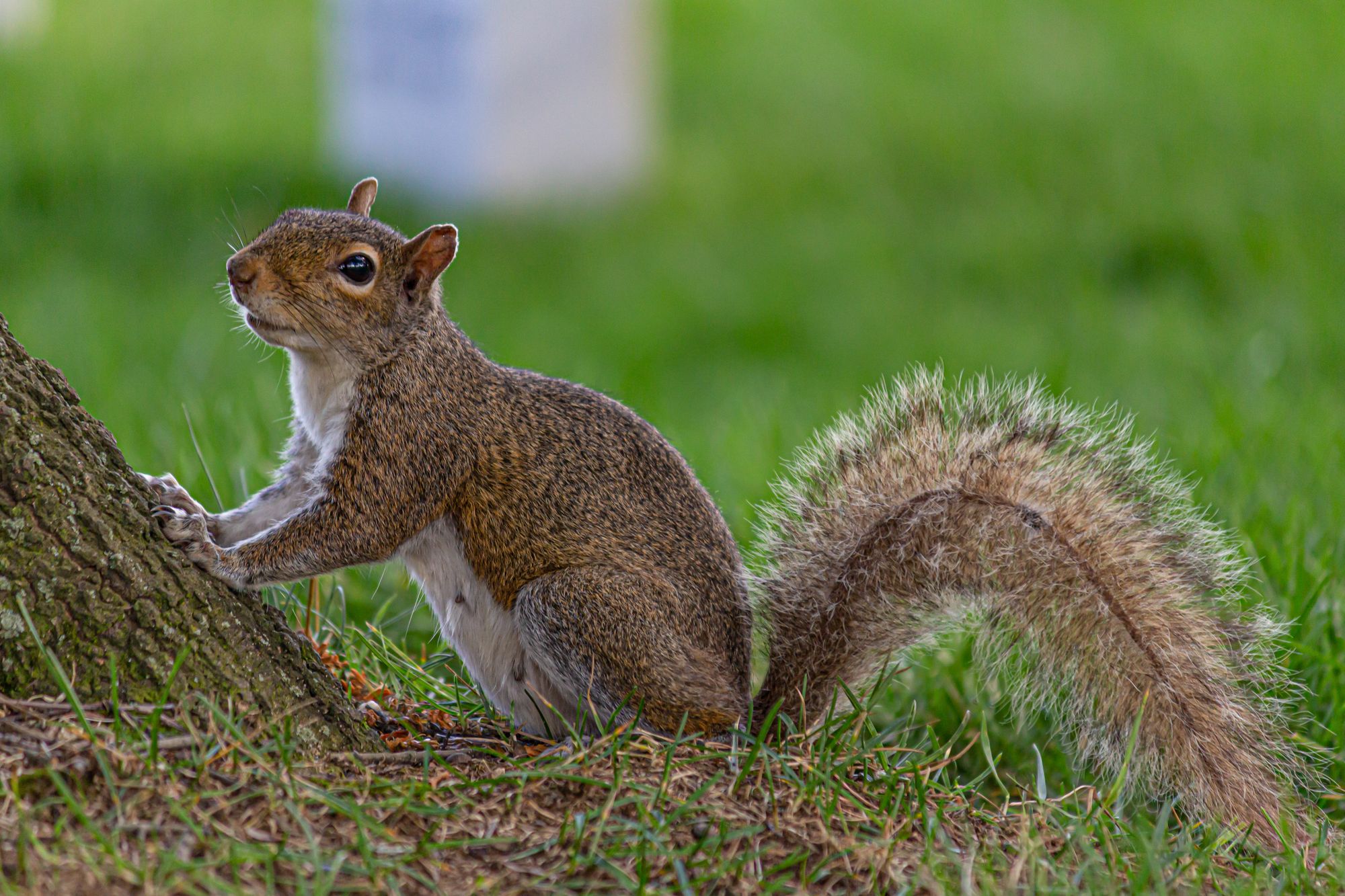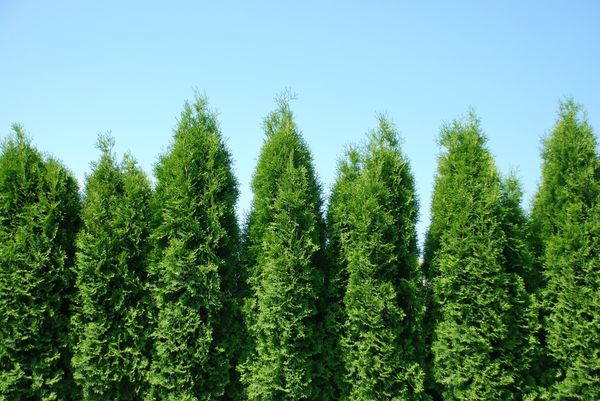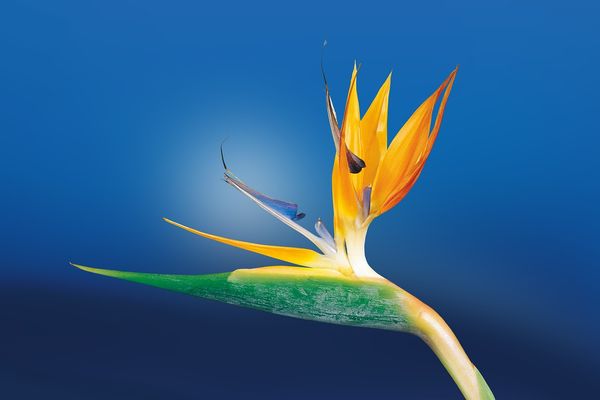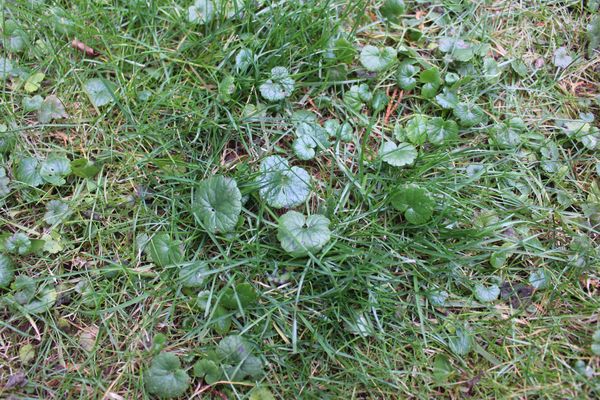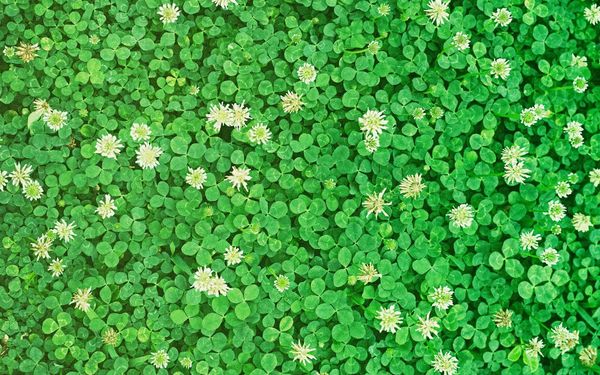Many people find squirrels a nuisance because they destroy lawns and break into bird feeders. Others see them as cute animals that they like watching scamper about their yard. Do squirrels eat insects? You could be intrigued whether you're interested in learning more about the creatures we witness almost daily or if you've encountered an injured squirrel needing your help.
Do Squirrels Eat Insects?
Since they are omnivores, squirrels do consume insects. If they have access to their preferred meals, it's doubtful that you would witness them grabbing grubs from the ground or delving into a mound of ants.
Squirrels prefer to consume apples and other fruits, nuts, seeds, and fungus over insects.
However, insects, rich in protein, fat, vitamins, and minerals, provide squirrels with a great energy source when there is a food shortage. In certain circumstances, squirrels get more protein per gram from eating insects than meat. Furthermore, squirrels can easily catch numerous insects.
What Sorts of Insects Eat Squirrels?
Depending on what is accessible, squirrels consume a range of insects. Some examples are mealworms, ants, grubs, snails, caterpillars, and spiders.
The insects mentioned above must be simple for squirrels to ingest since they instinctively seek energy-saving methods. They may even consume insects that are often more difficult to capture in specific circumstances, such as when they are famished or come upon an injured bug.
A squirrel may survive food shortage by eating insects, even if they aren't as tasty to squirrels as many plant-based diets are.
Do Squirrels Eat Ants?
Although ants are not a squirrel's favorite diet, they will consume them if there are no other viable options. Since 100 kilos of red ants provide roughly 14 grams of protein, ants are a great source of protein for squirrels. A dish of ants also supplies a squirrel with a healthy quantity of iron and about 50 grams of calcium.
Squirrels eat low-calorie foods like ants. However, since they are so nutrient-rich, squirrels don't need to eat enormous amounts of them for health advantages. Additionally, squirrels get twice as much protein from ants as meat.
Do Squirrels Eat Worms?
Even though worms aren't their favorite meal, squirrels will eat them if there aren't enough nearby nuts and seeds. Worms do, however, provide squirrels with a rich amount of nutrients, such as iron, copper, manganese, and zinc. Additionally, they contain many amino acids, which aid in the digestion of food and healing bodily structures in squirrels.
Squirrels are skilled diggers, so they don't have to wait for a downpour before worms come to the surface. Most squirrels dig to find nuts, roots and stems that can be eaten. Additionally, they could excavate to bury these food items for later.
Do Squirrels Eat Mealworms?
Squirrels enjoy both live and dried mealworms. Squirrels may get a good amount of protein and fat from mealworms, which contain around 17% and 14% of those nutrients. Squirrels often watch when you regularly feed your flock of free-range chickens or other bird mealworms. When the chance arises, squirrels have been known to pounce and get their share.
Consider investing in a squirrel-proof feeder to prevent squirrels from getting to the mealworms you feed your birds. Alternatively, if you have hens, ensure they only eat mealworms while securely kept inside their coop.
Do Squirrels Eat Cockroaches?
Because they prefer nuts and berries and cockroaches are hard to trap, squirrels don't typically consume them. However, suppose a squirrel manages to capture and destroy a cockroach. In that case, it will profit significantly from the high calcium, magnesium, potassium, and other vitamins and minerals in cockroaches.
If you see a squirrel eating a cockroach, it is probably doing so for one or both of the reasons listed below: Either the cockroach was hurt, or the squirrel was starving and had no other food options. Usually, rats, turtles, and lizards are more inclined to consume cockroaches than squirrels.
Do Squirrels Eat Snails and Slugs?
Squirrels are omnivores and will consume snails and slugs if they get starving. They do, however, like plant-based diets. Snails contain a lot of lysines, polyunsaturated fatty acids, calcium, and vitamin A, so if a squirrel takes the risk to eat one or both, it gains many health advantages.
Additionally, compared to eating an egg, squirrels get more amino acids by eating snails and slugs. However, a drawback of a squirrel eating snails and slugs is that they have a high cholesterol content.
Eat Mosquitoes Squirrels?
Normally, squirrels don't consume mosquitoes. The fact that mosquitoes are brutal for them to trap is one explanation for this. The second reason is that they like eating meals like vegetables and nuts when accessible.
For squirrels, mosquitoes are about as annoying as they are for us. Therefore, if a squirrel consumes a mosquito, it probably did so by chance while attempting to fend the pesky insect off. It's improbable that a squirrel would eradicate enough mosquitoes to be nutritionally relevant.
Do Squirrels Eat Caterpillars?
When their favorite diet is unavailable, squirrels may quickly eat caterpillars. Different quantities of food will be consumed by a squirrel depending on the kind and size of the caterpillars. Caterpillars have one benefit over many other bug species: they are more straightforward for squirrels to capture.
Some caterpillars have more protein and fat per gram for squirrels than a turkey leg. Caterpillars are high in fat, but the preponderance of that fat is healthy monounsaturated fat.
Do Squirrels Eat Lawn Grubs?
A squirrel's go-to diet when there aren't any more delicious plant-based options is lawn grubs. When searching for lawn grubs, squirrels may be highly damaging since it requires them to rip your grass. When they dig holes to conceal, their food finds, they help themselves to lawn grubs.
Lawn grubs are a great source of protein and fat for squirrels since roughly half of a grub's dry weight is protein. However, grass grubs only provide small crude fiber to squirrels.
Do Squirrels Eat Spiders?
Although spiders are generally not part of a squirrel's diet, they are sometimes consumed. When a squirrel cannot access nuts or other preferred foods at mealtimes, it occasionally eats spiders. Squirrels must be careful only to consume non-poisonous spiders while eating them.
Depending on the spider's size, squirrels may get varying amounts of nourishment from them. But generally speaking, spiders are a rich source of zinc, protein, and folic acid, which supports the health of red blood cells and ensures that the squirrel's body receives enough oxygen.
Squirrels eat insects for what reason?
Because they are omnivores or creatures that eat plants and animals, squirrels ingest insects. However, squirrels prefer to eat primarily herbivores when environmental circumstances permit. Because of this, squirrels often consume insects instead of their selected dietary sources.
In addition, squirrels may resort to insects for a protein boost if they have access to various plants but few high-protein seeds and nuts.
Squirrels may also consume insects for entertainment purposes. Studies on ground squirrels have shown that young squirrels, in particular, play to grow more adventurous and aware of their environment. Baby squirrels will do the same thing as a human infant would, which is to grasp anything they can.
Conclusion
If you put the two alternatives down in front of a squirrel, you'll be hard-pressed to find one that prefers to eat bugs and worms over a feast of plant-based food. However, as omnivores, squirrels may maintain a balanced diet by eating insects.
When they have no other choices, squirrels often decide to consume insects. Additionally, they choose insects that are simpler to ingest. For instance, they could go for the mealworms you give your birds or eat a grub while excavating a hole to bury other food.
It's fascinating to learn that squirrels eat bugs as part of their diverse diet, not just the typical nuts and seeds we often associate them with. Be it squirrels hunting insects like grasshoppers and cicadas or flying squirrels swooping down to snatch mosquitoes mid-air, their diet isn't limited to static food sources. Even though they're notorious for munching on nuts and seeds, their dietary range illustrates a unique aspect of their adaptability.
Interestingly, squirrels eat cicadas and even grasshoppers, showing an adventurous side to their eating habits. Additionally, they've been observed to have a particular preference for worms, demonstrating that they don't shy away from nutrient-rich, protein-packed insects. Despite their love for plant-based food, squirrels eat mosquitoes and other small insects to supplement their diet.
In the diverse world of squirrels, their varied diet plays a vital role in their survival and proliferation. From the assumption that they primarily eat nuts and seeds, it's clear that these agile creatures also partake in a more carnivorous side by hunting and consuming insects. Thus, whether it's squirrels that eat cicadas, those that prefer worms, or even the rare flying squirrels catching mosquitoes, it's essential to understand and appreciate the diverse food sources that contribute to their survival.

